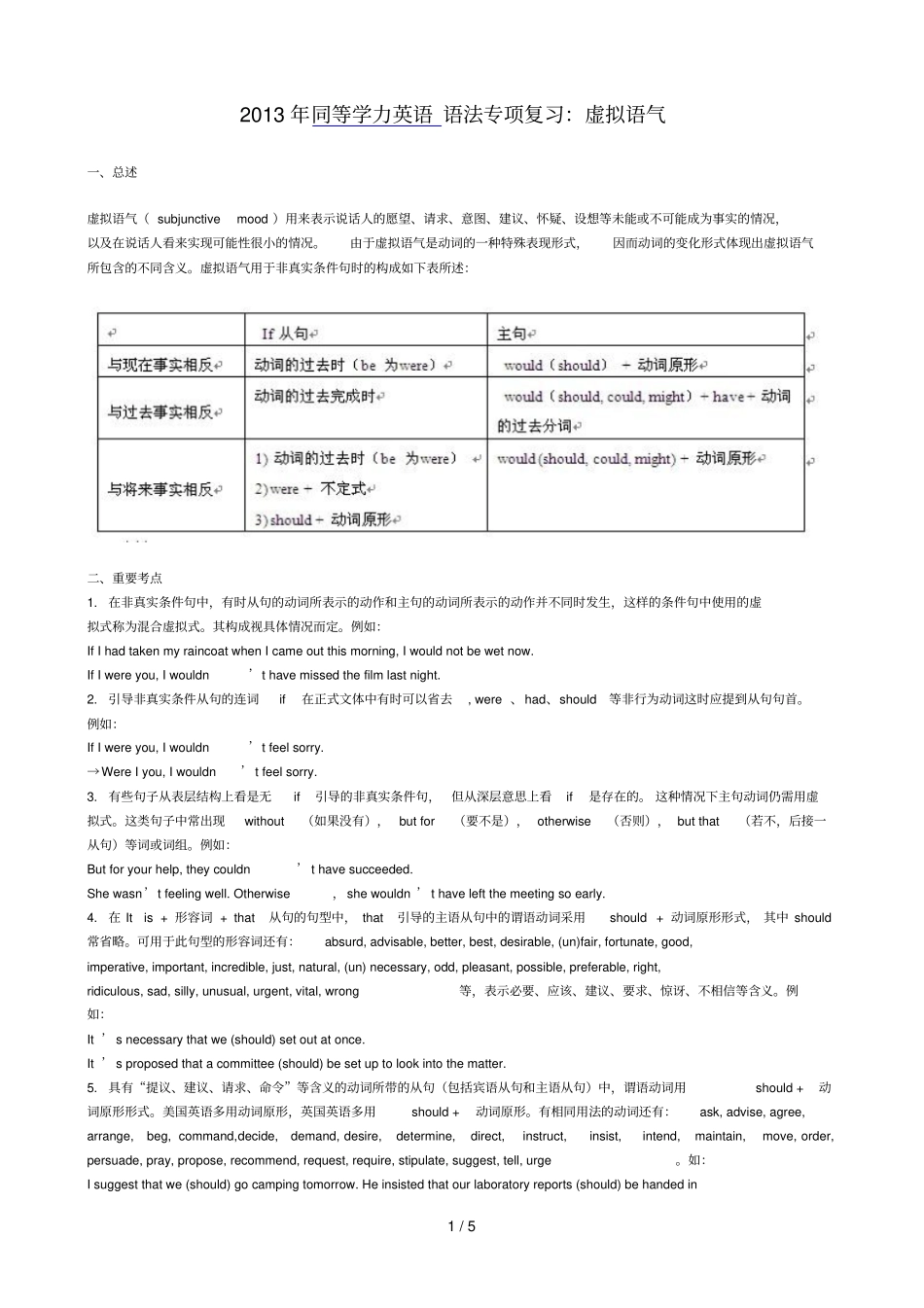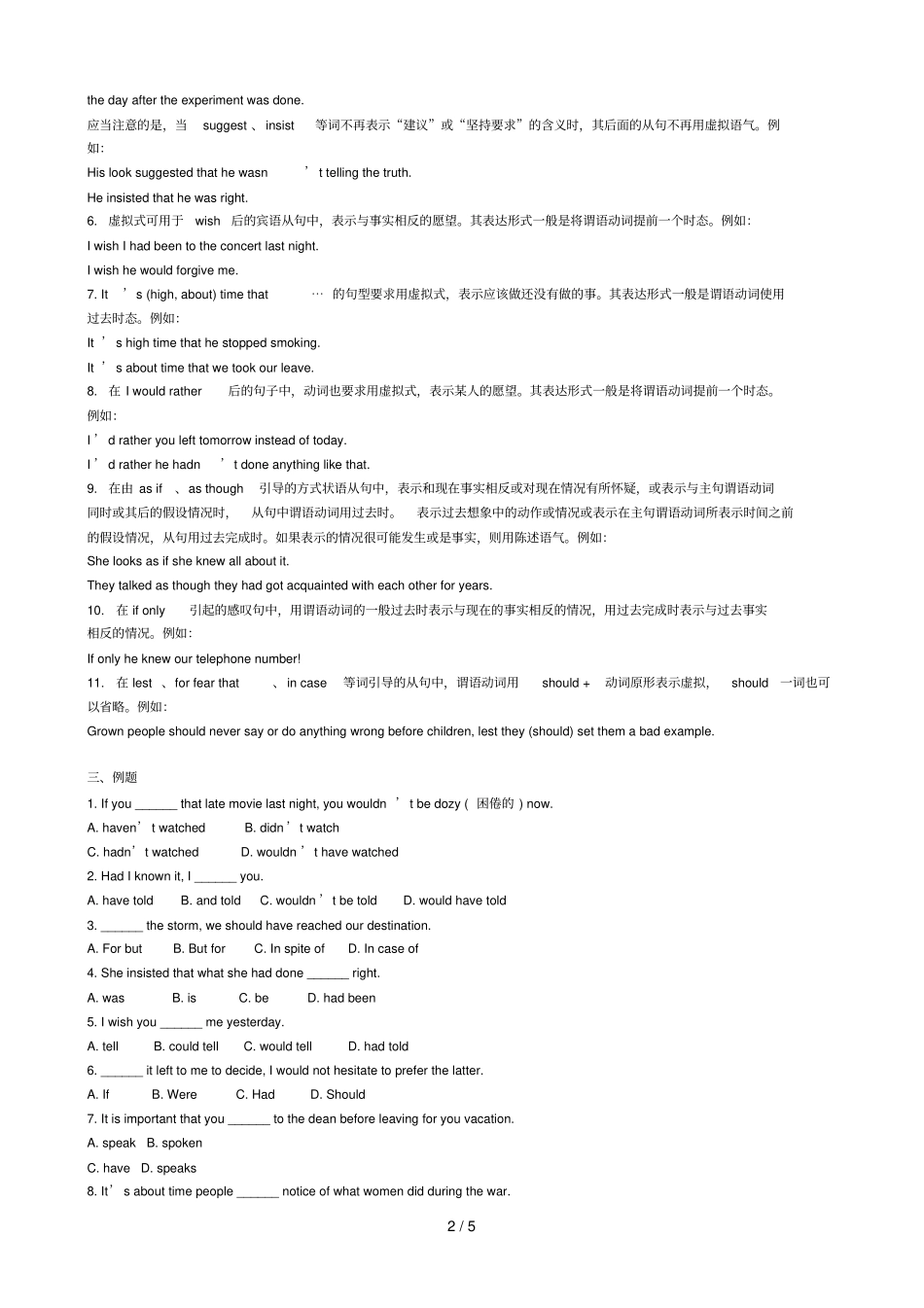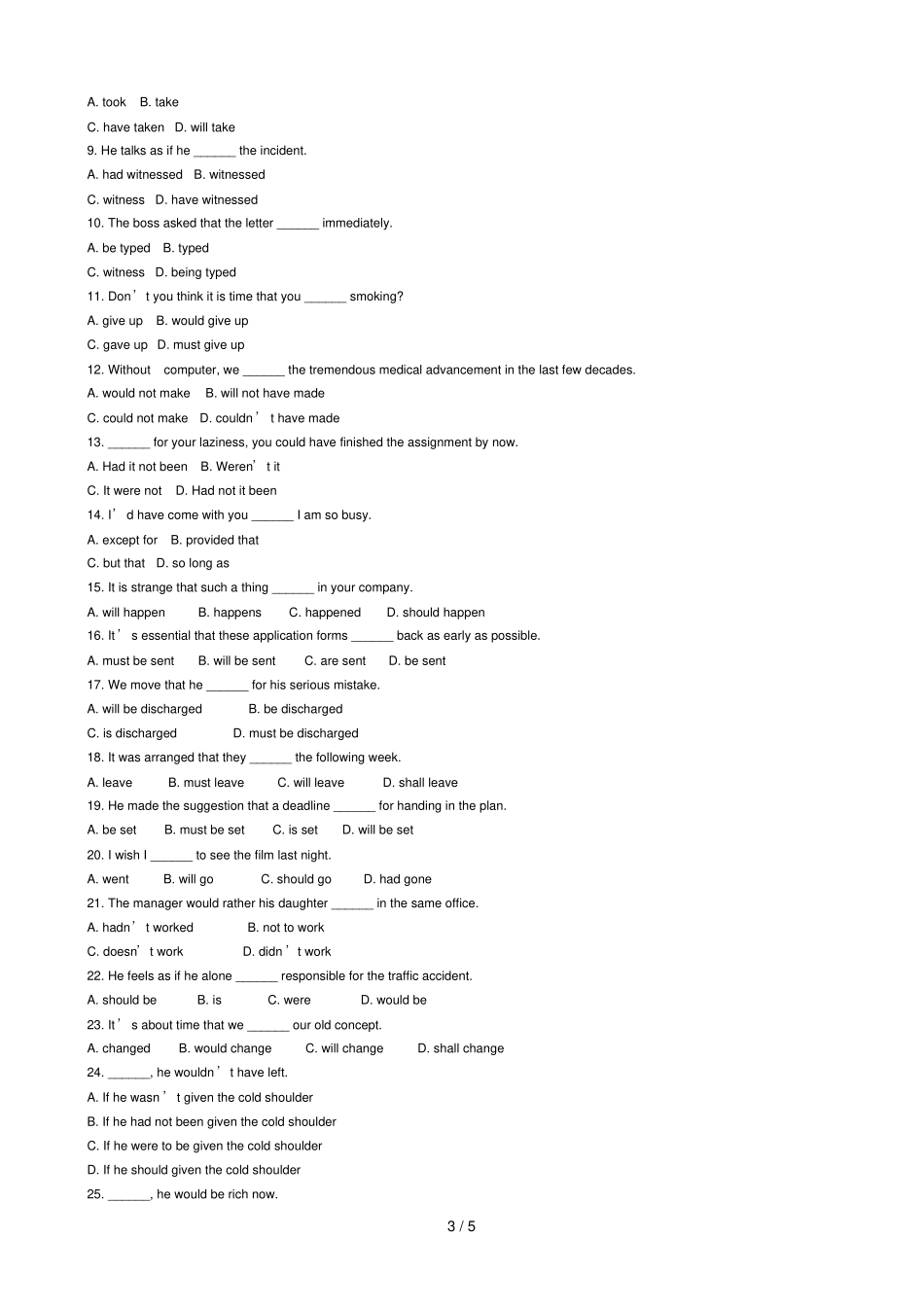1 / 5 2013 年同等学力英语 语法专项复习:虚拟语气一、总述虚拟语气( subjunctive mood )用来表示说话人的愿望、请求、意图、建议、怀疑、设想等未能或不可能成为事实的情况,以及在说话人看来实现可能性很小的情况。由于虚拟语气是动词的一种特殊表现形式,因而动词的变化形式体现出虚拟语气所包含的不同含义。虚拟语气用于非真实条件句时的构成如下表所述:二、重要考点1. 在非真实条件句中,有时从句的动词所表示的动作和主句的动词所表示的动作并不同时发生,这样的条件句中使用的虚拟式称为混合虚拟式。其构成视具体情况而定。例如:If I had taken my raincoat when I came out this morning, I would not be wet now. If I were you, I wouldn’t have missed the film last night. 2. 引导非真实条件从句的连词if 在正式文体中有时可以省去, were 、 had、should 等非行为动词这时应提到从句句首。例如:If I were you, I wouldn’t feel sorry. → Were I you, I wouldn’ t feel sorry. 3. 有些句子从表层结构上看是无if 引导的非真实条件句,但从深层意思上看if 是存在的。 这种情况下主句动词仍需用虚拟式。这类句子中常出现without (如果没有), but for (要不是), otherwise (否则), but that (若不,后接一从句)等词或词组。例如:But for your help, they couldn’ t have succeeded. She wasn’t feeling well. Otherwise, she wouldn ’ t have left the meeting so early. 4. 在 It is + 形容词 + that 从句的句型中, that 引导的主语从句中的谓语动词采用should + 动词原形形式, 其中 should 常省略。可用于此句型的形容词还有:absurd, advisable, better, best, desirable, (un)fair, fortunate, good, imperative, important, incredible, just, natural, (un) necessary, odd, pleasant, possible, preferable, right, ridiculous, sad, silly, unusual, urgent, vital, wrong 等,表示必要、应该、建议、要求、惊讶、不相信等含义。例如:It ’ s necessary that we (should) set out at once. It ’ s proposed that a committee (should) be set up to look into the matter. 5. 具有“提议、建议、请求、命令”等含义的...


